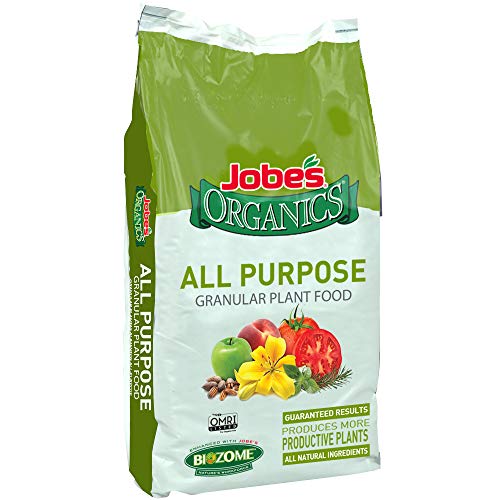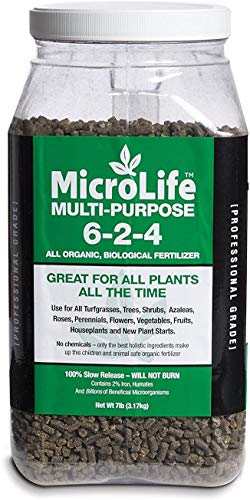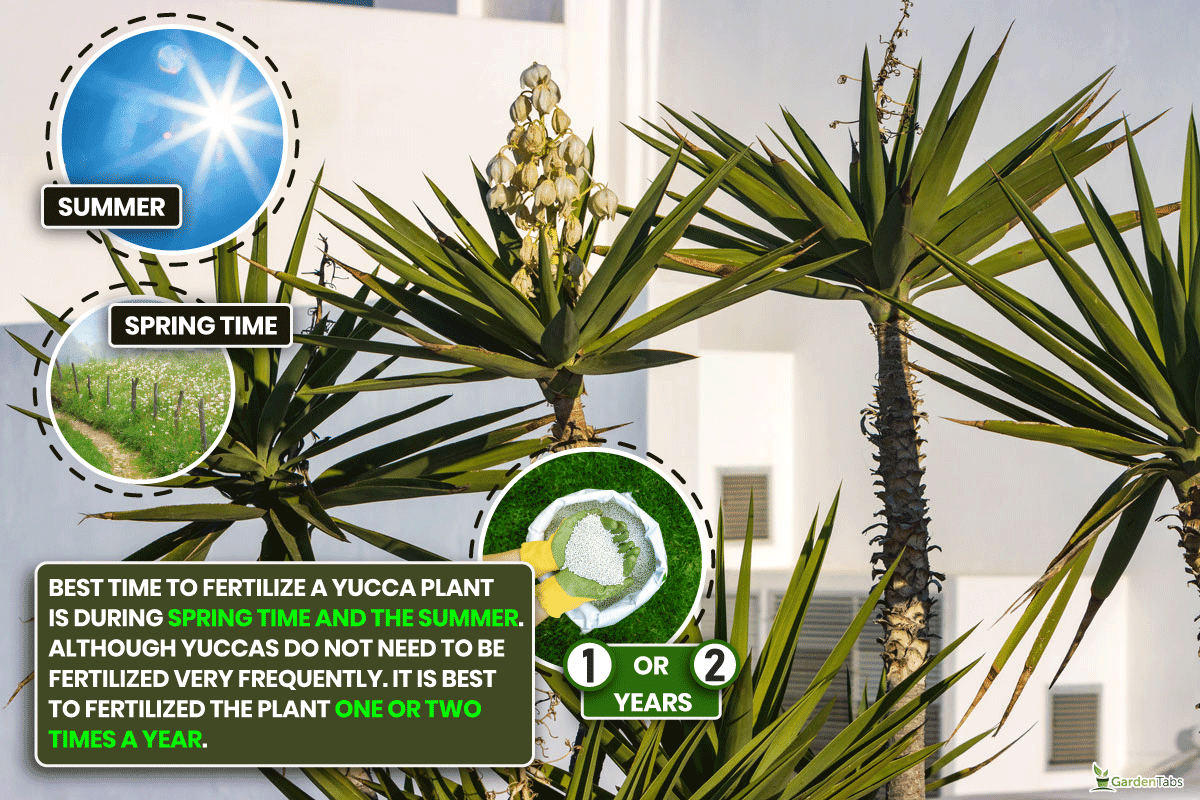Yuccas are perennial shrubs and trees that commonly grow in the southwestern United States and Mexico. Known for their sword-shaped leaves and clusters of white flowers, you can grow these plants indoors or outdoors! However, before you grow a yucca, it's important to know what type of fertilizer to use. We've researched this topic thoroughly and have some yucca growing tips for you.
The best fertilizers for yucca plants contain a low amount of nitrogen. In addition, the best yucca fertilizers have a balance of nutrients, or in other words, nutrients that are about equal in amount. Five fertilizers that meet these requirements include:
- Miracle-Gro Succulent Plant Food
- Home + Tree Succulent and Cactus Plant Food
- Perfect Plants Succulent Fertilizer
- Jobe's All Purpose Granular Plant Food
- Micro-Life Multi-Purpose Granular Fertilizer
You now have a list of good fertilizers for yucca plants, but there is still some information to discuss. For example, when should you fertilize a yucca? Can you use substances like Epsom salt, coffee grounds, and baking soda to help a yucca grow? How long does it take a yucca to mature, and how long does it live? Don't worry; we elaborate on that information in this post! Keep reading to learn more about fertilizing yuccas and about the maturity and life span of the plant.
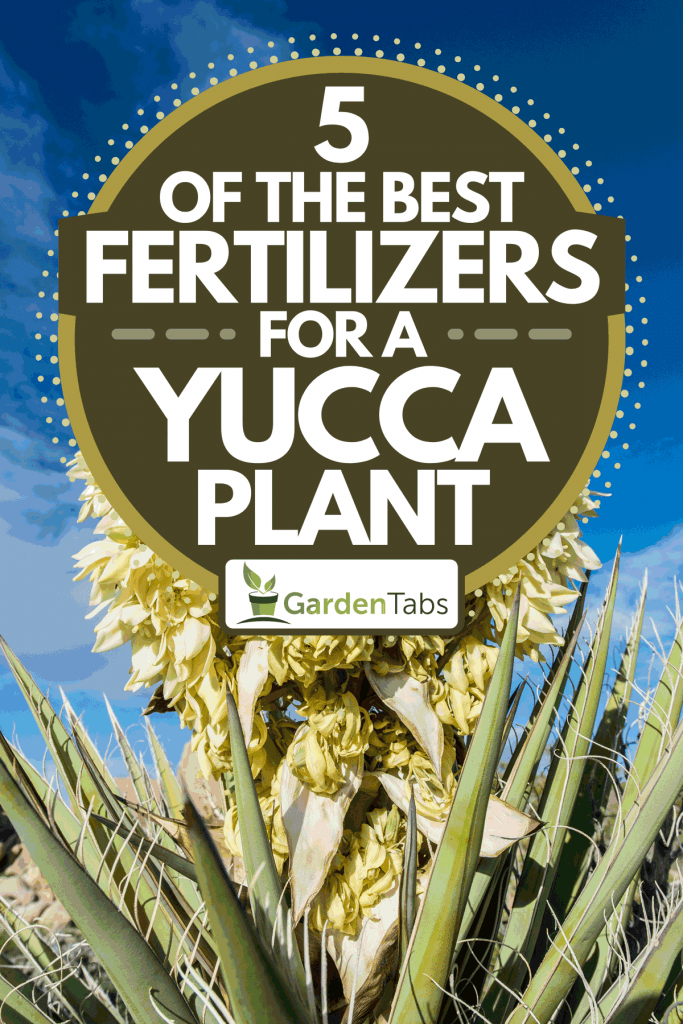
5 Of The Best Fertilizers For A Yucca Plant
1. Miracle-Gro Succulent Plant Food
Miracle-Gro Succulent Plant Food has a fertilizer ratio of 0.5-1-1. A fertilizer ratio shows the percentage of nitrogen, phosphorus, and potassium in a fertilizer. So, a fertilizer ratio of 0.5-1-1 means that MiracleGro Succulent Plant Food contains 0.5 percent nitrogen, 1 percent phosphorus, and 1 percent potash, which is a mixture of potassium compounds.
As the fertilizer ratio indicates, this fertilizer does have a low amount of nitrogen and a good balance of nutrients. Therefore, Miracle-Gro Succulent Plant Food is a great option for fertilizing yuccas; it has the appropriate amount of nitrogen and the balanced nutrients that the yucca needs to maintain its shape and boost its growth!
Since Miracle-Gro is a liquid fertilizer, you should apply it to your yucca about three to four times yearly. It is easy to use this fertilizer. You simply apply it like you would water your plants.
Click here to find Miracle-Gro Succulent Plant Food on Amazon.
2. Home + Tree Succulent and Cactus Plant Food
Home + Tree Succulent and Cactus Plant Food has a fertilizer ratio of 3-1-2. Though this fertilizer has a little more nitrogen than Miracle-Gro Succulent Plant Food does, it still has a low nitrogen percentage, so it will help yucca plants maintain their shape. Also, the nitrogen, phosphorus, and potassium in this fertilizer are fairly balanced, which will assist yuccas with healthy growth.
Home + Tree also contains iron and manganese, which are two trace elements that promote the growth of yucca plants.
Like Miracle-Gro, Home + Tree is also a liquid fertilizer, so you should apply it to your yucca plant three to four times a year. Analyze your yucca's soil before applying this fertilizer. If the soil is completely dry, you can apply the fertilizer immediately. However, if the soil holds any moisture, wait for one to two days before using the fertilizer.
Check out Home + Tree Succulent and Cactus Plant Food on Amazon.
3. Perfect Plants Succulent Fertilizer
The fertilizer ratio of Perfect Plants Succulent Fertilizer is 13-11-11. As you can tell, this fertilizer has more nitrogen than both Miracle-Gro and Home + Tree. However, 13 percent is still a pretty low amount of nitrogen, and this percentage works well for all succulents, including yuccas. With its low nitrogen percentage and a good balance of nitrogen, phosphorus, and potassium, this fertilizer is sure to help yucca plants grow!
Unlike Miracle-Gro and Home + Tree, Perfect Plants is a pellet fertilizer. Because it is a pellet fertilizer, only use it on your yucca twice a year. To apply it to your yucca plant, simply pour the pellets onto the plant's soil. Make sure that the pellets are evenly dispersed. After you use the fertilizer for the first time, be sure to thoroughly water the yucca's soil.
Click here to find Perfect Plants Succulent Fertilizer on Amazon.
4. Jobe's All Purpose Granular Plant Food
Jobe's Granular Plant Food has a fertilizer ratio of 4-4-4. This fertilizer ratio shows that Jobe's contains a fairly low nitrogen percentage and the most balanced nutrients of all the fertilizers thus far. Because it fulfills the requirements for low nitrogen and balanced nutrients, it is a good fertilizer for yucca plants.
In order to apply Jobe's, which is a granular fertilizer, pour the fertilizer into a cup, and then pour the cup onto the soil of the yucca plant. For every foot of plant spread, use one and one-half cups of fertilizer. If your plant is wider than three feet, use two cups of fertilizer.
Check out Jobe's All Purpose Granular Plant Food on Amazon.
5. Micro-Life Multi-Purpose Granular Fertilizer
Micro-Life Granular Fertilizer has a fertilizer ratio of 6-2-4. Therefore, Micro-Life's nitrogen percentage is fairly low. Though this fertilizer isn't as balanced as the fertilizers above, its nutrients are still pretty close to being equal in amount. As with all the fertilizers on this list, Micro-Life's low nitrogen content and fairly balanced nutrients will promote healthy growth for yuccas.
Like Jobe's, Micro-Life is a granular fertilizer, so to apply the fertilizer, measure it out in a cup, and then pour the cup onto the soil of the yucca plant.
Click here to find Micro-Life Multi-Purpose Granular Fertilizer on Amazon.
When Should You Fertilize a Yucca Plant?
The best time to fertilize a yucca plant is during the spring and the summer. Yuccas do not need to be fertilized very frequently. In fact, it is best if you only fertilize the plants one to two times a year.
How Long Does it Take a Yucca Plant to Mature?
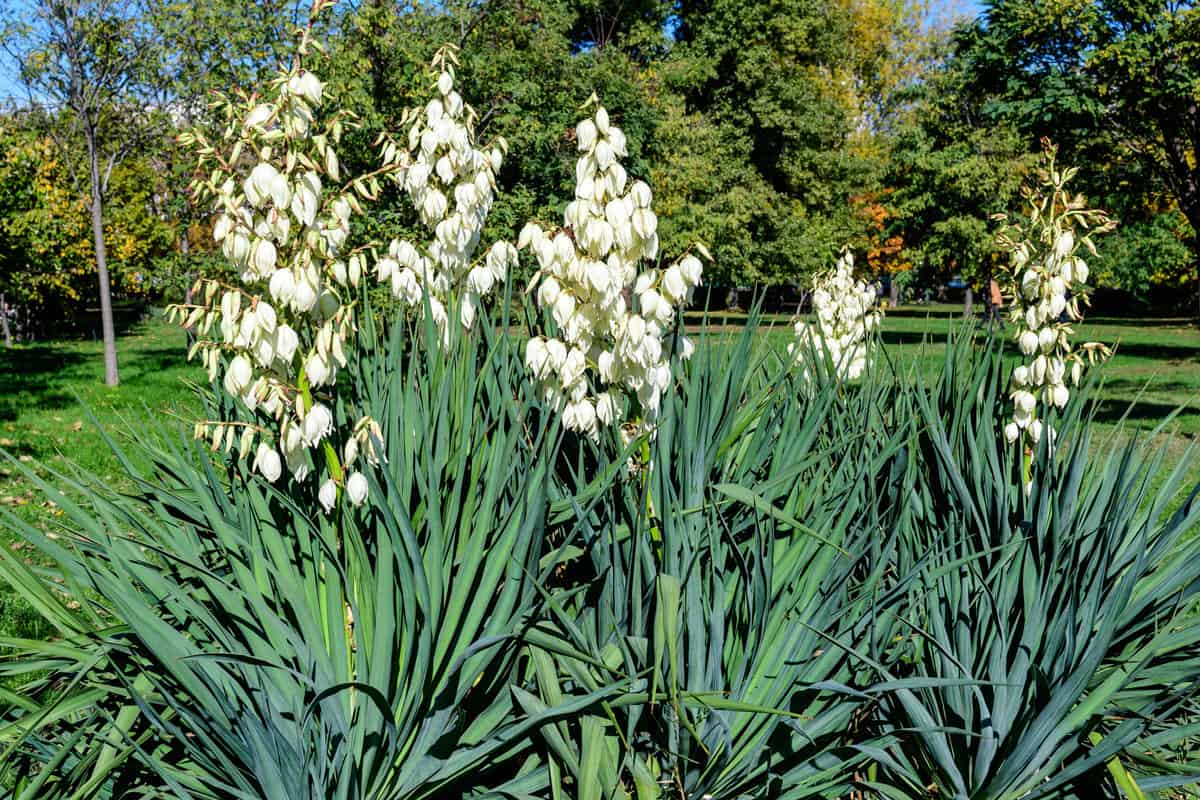
Yucca plants mature quickly. Their roots form about three or four weeks after they have been planted.
How Long Does a Yucca Live?
When they are planted in pots, yucca plants for about five years; this is a decent lifespan for a plant. However, many things can decrease a yucca plant's life span. The most common things that cause yucca plants to die early include inadequate light, overwatering, inadequate temperatures, and fertilizer issues. Be sure to look out for these problems so that help your yucca plant live as long as it can!
Is Epsom Salt Good for a Yucca Plant?
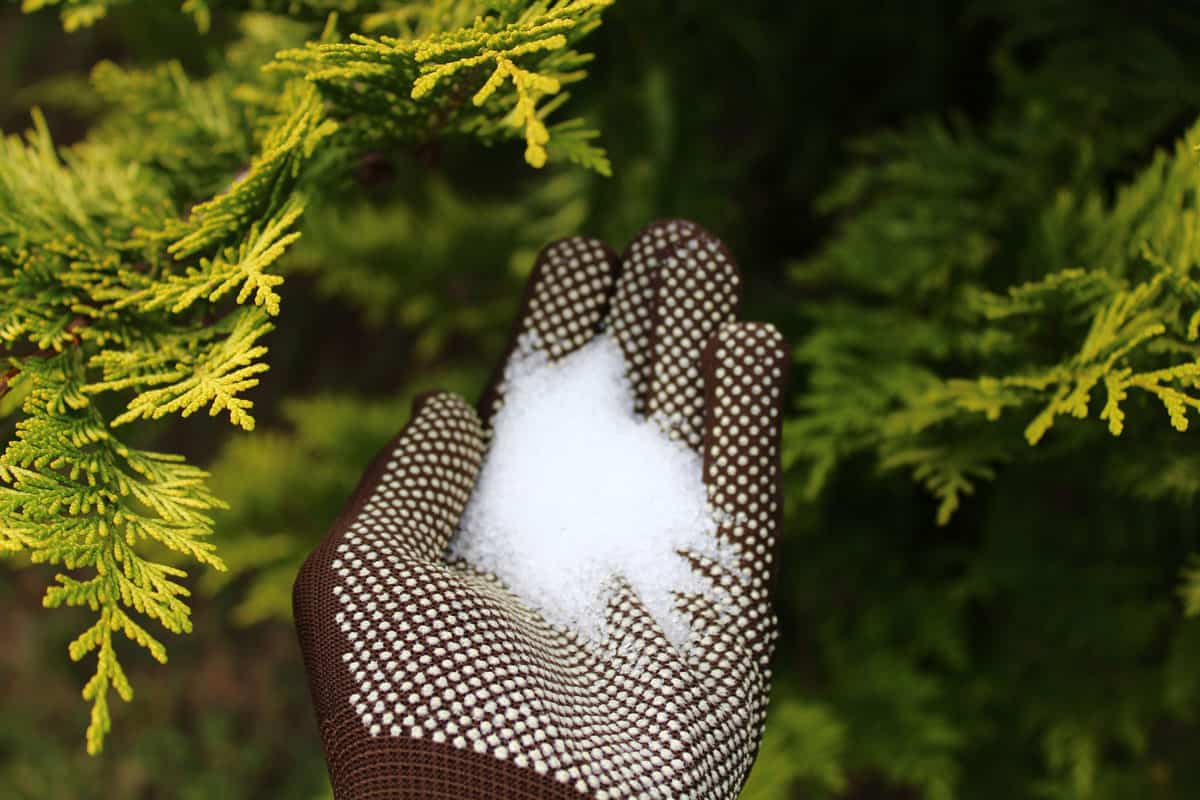
Epsom salt is very beneficial for yucca plants. Epsom salt contains magnesium sulfates. Magnesium improves and maintains the health of yucca plants. So, if you sprinkle some Epsom salt on your yucca, it can improve the plant's health. One specific way that Epsom salt can improve the health of yucca plants is by enriching yellow leaves, which don't have enough magnesium.
Are Coffee Grounds Good for Yucca Plants?
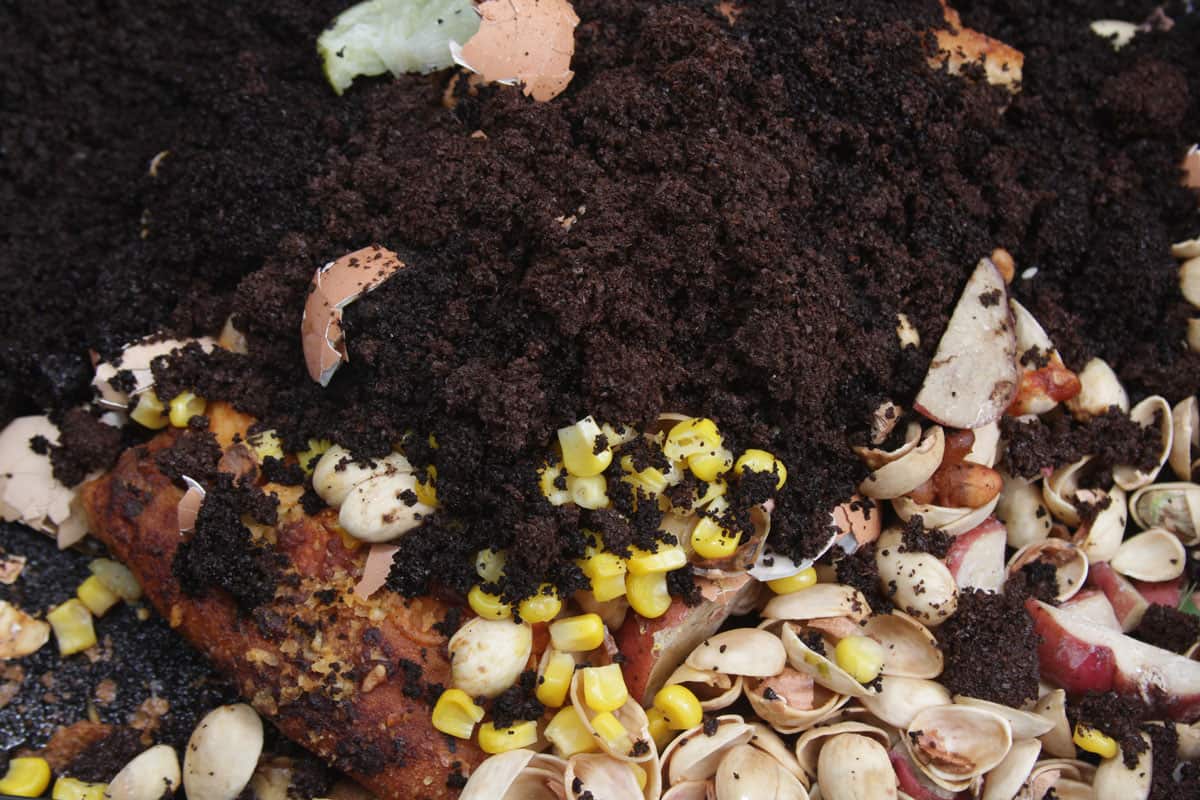
Coffee grounds are also good for yucca plants. They provide a natural source of nitrogen, which, as we've established, yuccas need in small amounts.
Is Baking Soda Good for a Yucca?
Baking soda is good for a yucca plant, but it is the most effective for fruits and vegetables. If you apply baking soda to yucca plants, it can prevent the growth of fungal spores, which present a lot of harm to the plants. Baking soda can also prevent yucca plants from acquiring some diseases.
In closing
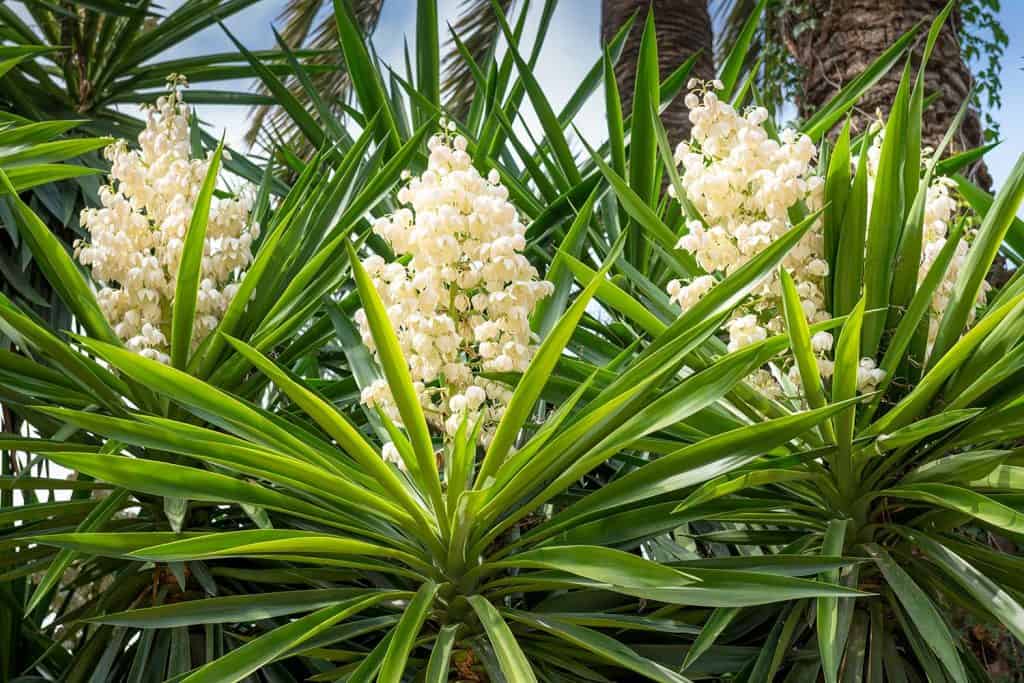
Yuccas don't need to be fertilized often, but if you want to use fertilizer on your yucca, choose one that is low in nitrogen and has balanced nutrients. Also, feel free to add some Epsom Salt, coffee grounds, or baking soda to your yucca's soil in order to help it grow.
Before you go, check out some of our other articles below:




